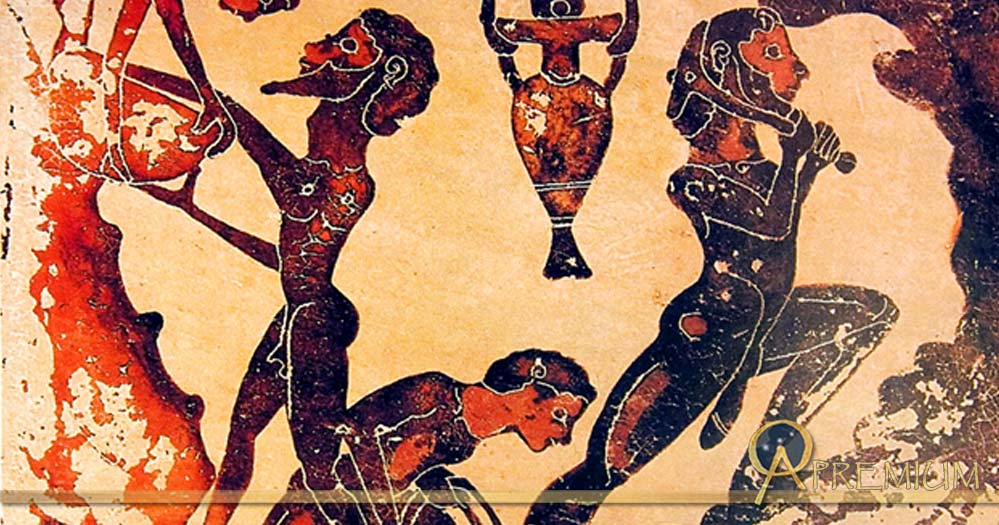Did He Create a Blissful Utopia or a Tyrannical Communist Nightmare? Plato’s Ancient Class System and Social Engineering Revealed
Perhaps surprisingly to some, classical Greek philosopher Plato was a social engineer; and he was the first of many “planners” to come. In essence, Plato, who laid the foundations of Western philosophy and science, was the first communist before the advent of Karl Marx in the 19th century.
Plato’s ideal state was what one would recognize today as the “welfare state.” Plato’s state in theory is spoken of in his book “ The Republic.” In his book, he displays an ideal form of government where business becomes a part of the state. In other words, Plato’s planning is top-down, not-bottom up, and speculated to be easier with which to control and socially engineer the population.
Why would Plato do this, you may be wondering? And the answer is: power.

Plato’s Academy mosaic from Pompeii (Public Domain)
Dependence on Government
To create a state based on provisions provided by the government through the confiscation of private property would nullify property rights, thus effectively taking the ability away from the individual to produce and consume on his or her own behalf in order to benefit from the fruits of their labor.
Therefore, you would no longer work to get ahead or to make ends meet, rather you would provide the state with resources, which are collected and redistributed among the masses. A Russian joke during the Soviet Union was “So long as the bosses pretend to pay us, we will pretend to work.” This system leads to welfare and dependence on the government as there are no incentives to get ahead.
Let us investigate: Is this or is this not Plato’s ideal form of government?

The Republic: Title page of the oldest manuscript: Paris, Bibliothèque Nationale, Gr. 1807 (9th century) (Public Domain)
The Guardians of Society: Class System
Plato’s ideal state starts with the community, in which he states that, “the elder must govern, and the younger be governed.” This remark seems simple and yet logical. We all govern those who need guidance, especially the family unit, in which the parents look after the child until that child has reached a certain age of maturity, when he or she is let go in order to make a life of their own. Plato seems to use this aspect of the parent/child approach and apply it to society as a whole, in which society is the child and thus needs Guardians to look over and orchestrate the day-to-day activities deemed best, in order for society to function.
So, who are these Guardians deemed fit to look over the people?

Plato's Symposium, depiction by Anselm Feuerbach (Public Domain)
The Guardians, according to Plato, are those who have the best skills when it comes to watching over society. They are in fact philosophers of the highest order, one could say. They must have the ability to dictate what is best and without blemish and in doing so will find themselves in a position of kingship. The philosopher-king in Plato’s mind must be a lover of wisdom and in effect cannot be a lover of another. Therefore, the philosopher-king is married to wisdom.
In order for the philosopher-king to rule affectively, he must also have an army to uphold his wisdom when it is least understood by the community, which may give rise to rebellion. In order to counter this, Plato suggests using a class known as the ‘Auxiliaries’ or ‘Warriors’. Plato uses the analogy of silver as his metal when describing these auxiliaries that will police the actions of the community who are under the symbol of bronze.
Like this Preview and want to read on? You can! JOIN US THERE ( with easy, instant access ) and see what you’re missing!! All Premium articles are available in full, with immediate access.
For the price of a cup of coffee, you get this and all the other great benefits at Ancient Origins Premium. And - each time you support AO Premium, you support independent thought and writing.
- Aristotle is Dead, but his Ideas are Alive: On Private Property and Moneymaking – Part I
- Were You Born a Democrat or a Republican? The Historical and Biological Factors That Could Lead Your Vote
- Why are Democrats ‘Left’ and Republicans ‘Right’? The Surprising History of Political Affiliations
Cam Rea is an author and military historian. He has written numerous articles for Ancient Origins, Classical Wisdom Weekly, and has authored several books, including: God is an Anarchist
--
Top Image: Slaves working in a mine. The sustenance provided by slaves in Ancient Greece meant that citizens had free time to participate in politics. (Public Domain)
By Cam Rea


















